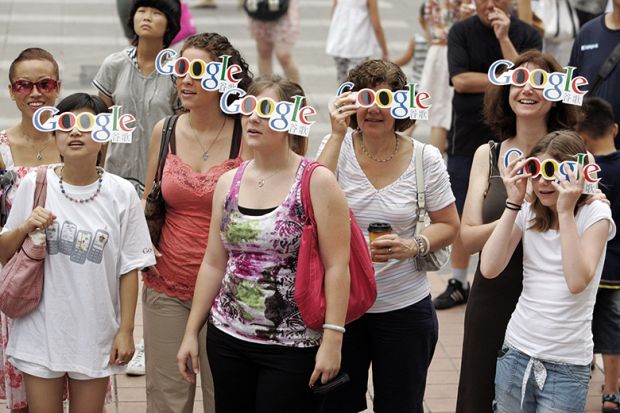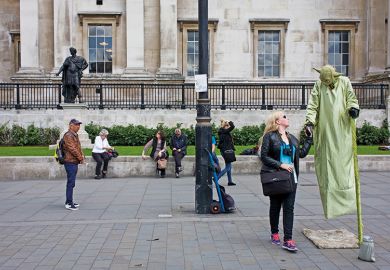“What do we talk about when we talk about innovation?”
The question was posed by Stephen Toope, vice-chancellor of the University of Cambridge, at a recent conference held by the technology company Huawei and Times Higher Education.
Innovation is a word that’s thrown around in business, government and higher education, but which is rarely well defined. The risk is that it means lots of different things – or perhaps nothing at all.
“You may know the lines by John Steinbeck: ‘Ideas are like rabbits; you get a couple of them and learn how to handle them, and pretty soon you have a dozen.’ If only innovation were as simple,” Toope told an audience in London as he addressed this ambiguity head-on.
“Innovation is the process of putting new ideas into practice; it certainly relies on ideas, but it is fundamentally about applying them to improve a product, a service, a process or an experience.”
Change and improvement, whether within an institution, business or society, are “constant and necessary”, Toope argued, and while economic impact is a key aim of innovation, “entrepreneurship is not always intrinsically innovative, and innovation can be found in many areas beyond the realm of commercial exploitation” – including universities.
How? In research – for example, applying known technologies to new fields; in teaching, by engaging students in new ways to transform their experience; and, Toope argued, through social innovation, including new approaches to the delivery of public services and by supporting social entrepreneurs.
This role in the conception, gestation and delivery of innovation that benefits society must mean close interaction with the technology giants. This is particularly pressing when developments in artificial intelligence and machine learning threaten – or promise – to change everything.
As Toope put it: “Innovation doesn’t happen in a vacuum, and as history teaches us, new technologies are not always, by default, used to the benefit of society.
“As we plunge headlong into the digital revolution, universities have a key role to play at the interface between technology and society.”
In our cover story this week, we take a closer look at the state of that relationship, and how the power dynamic between universities such as Stanford and the California Institute of Technology and the Silicon Valley firms spawned by many of their brightest students and faculty have evolved.
This is about where what Toope calls the “locus of innovation” now sits, but it’s also about related questions, such as how basic research is supported within different business models (and when the talent flows mainly one way), and how things may shift again in response to the “techlash” that some believe is currently under way.
But questions around the relationship between universities and Silicon Valley are by no means confined to the tug of war over the most talented computer scientists. There is also the question of how and to what extent universities can use their wider expertise to consider the social impacts of their innovations.
That universities must play a central role in the shaping of our brave new world is clear.
At the Huawei/THE event, Toope quoted a World Economic Forum report authored by the president of Carnegie Mellon University, Farnam Jahanian: “It is up to us [universities] to provide the ethicists, artists and philosophers who can point the way, the policy experts and economists who can draw the map, and the cognitive scientists and sociologists who can ensure that the destination is designed for people, as well as machines. And it is up to us to ensure that these scholars are working side by side with applied researchers and technologists who are driving the revolution.”
No less a figure than Henry Kissinger (aged 95) made a similar plea writing in The Atlantic this month.
The epoch-defining questions about the future of artificial intelligence, he warned, “are being left to technologists and to the intelligentsia of related scientific fields” while “philosophers and others in the field of humanities who helped shape previous concepts of world order” are too often excluded because of their own lack of technical expertise.
This needs to be fixed, he writes, and “if we do not start this effort soon, before long we shall discover that we started too late”.
POSTSCRIPT:
Print headline: Powers for good
Register to continue
Why register?
- Registration is free and only takes a moment
- Once registered, you can read 3 articles a month
- Sign up for our newsletter
Subscribe
Or subscribe for unlimited access to:
- Unlimited access to news, views, insights & reviews
- Digital editions
- Digital access to THE’s university and college rankings analysis
Already registered or a current subscriber?




